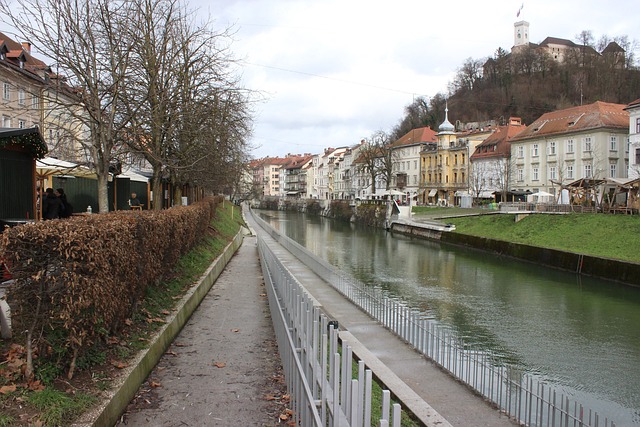Karachi, Pakistan's economic powerhouse, faces significant challenges in waste management due to rapid urbanization and population growth. The current system is inadequate, leading to environmental pollution and health hazards. Innovative solutions such as source segregation, efficient collection systems, modern recycling technologies, and smart waste management systems are crucial for Karachi to become a cleaner, more sustainable city. Community engagement, like that seen in Chapal Courtyard, where residents actively participate in source segregation, recycling, and clean-ups, is key to successful waste management strategies that enhance environmental cleanliness and foster job opportunities.
Karachi, Pakistan’s bustling metropolis, faces significant challenges in waste management, with overflowing landfills and inadequate recycling systems. This article delves into the current state of waste disposal in Chapal Courtyard, a vibrant community within the city. We explore innovative solutions to enhance practices, focusing on the crucial role of community engagement in fostering sustainable changes. By examining successful models, we aim to shed light on how Karachi can navigate its waste management crisis and create a cleaner, healthier future for all its folks.
- Understanding Waste Management in Karachi: A City's Challenge
- The Current State of Chapal Courtyard's Waste Disposal Systems
- Innovative Solutions for Improved Waste Management Practices
- Community Engagement and Its Role in Sustaining Positive Changes
Understanding Waste Management in Karachi: A City's Challenge

Karachi, as a bustling metropolis and Pakistan’s economic hub, faces a significant challenge in managing its waste effectively. The rapid urbanization and increasing population have led to a surge in solid waste generation, creating an urgent need for efficient waste management practices. Navigating the complex landscape of waste disposal and recycling in Karachi is essential to ensuring a clean and sustainable environment for its residents.
The city’s waste management system has been struggling to keep up with the demands of its growing population. Unscientific dumping sites and open burning of waste have become common sights, causing severe environmental pollution and health hazards. In light of these challenges, implementing innovative solutions is crucial. Effective waste segregation at source, efficient collection systems, and modern recycling technologies can significantly improve the current scenario. By adopting these measures, Karachi can strive towards becoming a cleaner, more sustainable city, setting an example for urban centers across Pakistan.
The Current State of Chapal Courtyard's Waste Disposal Systems

Chapal Courtyard, a vibrant community in Karachi, has witnessed significant growth over the years, but its waste management systems have struggled to keep pace with this rapid development. The current state of waste disposal in the area is a pressing issue, characterized by inadequate infrastructure and unsustainable practices. Local residents often find themselves dealing with overflowing bins, unsanitary conditions, and the pervasive odors that accompany them.
The lack of efficient waste collection services has led to a proliferation of open dumping sites, which not only mar the scenic beauty of the courtyard but also pose significant environmental hazards. In light of these challenges, it’s evident that Chapal Courtyard needs a comprehensive overhaul of its waste management strategies to ensure a healthier and more sustainable future for both its residents and the surrounding ecosystem.
Innovative Solutions for Improved Waste Management Practices

In Karachi, a bustling metropolis known for its vibrant and diverse communities, innovative solutions are emerging to tackle the pressing issue of waste management. Traditional methods often fall short in keeping up with the city’s rapid growth and changing landscapes. To address this, local initiatives are exploring cutting-edge technologies and sustainable practices. For instance, the implementation of smart waste collection systems leverages real-time data to optimize routes, reduce manual labor, and improve efficiency. These systems can also help identify areas prone to littering or illegal dumping, enabling proactive measures.
Additionally, there’s a growing emphasis on recycling and upcycling initiatives. Community-based programs are encouraging residents to separate and recycle waste, reducing the burden on landfills. The use of advanced sorting technologies ensures that recyclable materials are processed effectively, fostering a circular economy. Such practices not only contribute to a cleaner environment but also create job opportunities in waste management, offering a sustainable path forward for Karachi’s waste management practices.
Community Engagement and Its Role in Sustaining Positive Changes

Community engagement plays a pivotal role in the sustainable management of waste in Karachi, where collective efforts can lead to significant positive changes. By involving residents, local organizations, and businesses, Chapal Courtyard has been able to implement effective waste management practices. This includes initiatives like segregation at source, recycling programs, and community clean-up drives that foster a culture of responsibility and environmental stewardship.
Through workshops, awareness campaigns, and regular interactions, the project educates the community about the impact of proper waste disposal and encourages them to adopt eco-friendly habits. This collaborative approach not only enhances the cleanliness and aesthetics of the area but also empowers residents to take charge of their surroundings, ensuring a healthier and more sustainable Karachi.
Karachi, as a rapidly growing metropolis, faces significant challenges in waste management. The current state of Chapal Courtyard’s systems highlights these issues, but innovative solutions offer hope for improvement. Engaging the community is vital to sustaining positive changes, ensuring that everyone takes responsibility for their environmental impact. By adopting new practices and fostering a culture of sustainability, Karachi can strive towards a cleaner, healthier future for its residents.
